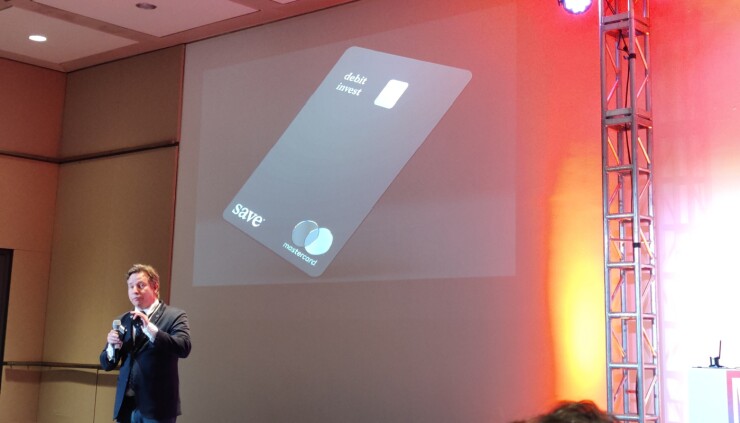Michael Nelskyla wants to give consumers the option to open a savings account that draws yields from the market instead of interest rates.
Save, a Houston-based fintech founded by Nelskyla, its CEO, closed on the largest round of funding, and first institutional capital, in its history. BNP Paribas led the raise, joined by Webster Bank, to drive Save's business-to-business strategy and scale up its current products. The fintech is accelerating its growth at a time when markets are volatile, interest rates are rising and
What Save does that's different from many other nonbank financial providers is combine deposits insured by the Federal Deposit Insurance Corp. with higher returns from curated investment portfolios.
"There hasn't been a lot of innovation in the retail banking space," Nelskyla said in an interview. "It would be probably fair if I said there hasn't been any for 100 years, because the typical account that you get offered is a checking account, or savings account. And it's all the same wherever you go."

Save's market-related savings product, which launched this summer, safeguards deposits with Stamford, Connecticut-based Webster Bank, while investing in ETFs allocated based on a customer's risk appetite and interest in environmental, social and governance assets. Due to FDIC-insured partnerships, customers won't lose any deposits, even if the investments don't pay off. The company charges management fees on its products unless they don't provide returns.
Higher-yielding bank products are an option to keep inflation, which has broken records this year, from eroding the value of money. Save doesn't guarantee returns, but currently projects annual percentage yields from its market savings accounts of 7.61% on a one-year term, 5.73% on a two-year term and 9.25% on a five-year term, per its website. Save also offers a credit card that replaces rewards with investments and projects an APY of 3.81% on its "plus" card and 5.71% on its "premium card. Returns are subject to long-term capital gains taxes instead of income tax, which is less typical for bank accounts and potentially beneficial based on the consumer.
Save will use the capital infusion from Paris-based BNP Paribas and Webster Bank to double its workforce, which currently has more than 20 employees. Nelskyla founded Save in 2020 and hired the team from organizations including Goldman Sachs, UBS and NASA. The CEO said he expects Save to reach profitability by 2024. The company currently has 33,000 customers across its products.
The recent funding is also key to Save's B2B strategy. The fintech plans to partner with several FDIC-insured financial institutions next year, ranging from smaller regional banks to leading U.S. retail firms, Nelskyla said. He also said the company will work on expanding its investment portfolio options to cater to a wider breadth of consumers.
Matthew Smith, executive managing director and chief digital banking and enterprise product officer at Webster, said in a prepared statement that the $65 billion-asset bank was excited to expand its partnership with Save and support its growth. Webster Bank, which has been Save's exclusive bank partner since the summer, also announced Monday
BNP Paribas has also been increasing its contributions to fintechs.
"BNP Paribas is committed to market innovation that responds to client needs," said BNP's Steve Nawrocki, head of equity derivatives and global equities Americas, in a prepared statement. "As a leading European institution with technology as a key pillar of our strategic plan, we continue to collaborate with fintechs with scalable benefits to our global client franchise."
In April, BNP Paribas invested in the fintech-focused fund Anthemis through its Global Markets Strategic Investments arm. In October the financial giant invested more than $200 million in Fluro, a U.K.-based consumer lender, and last month it acquired Kantox, a fintech focused on the automation of currency risk management.





